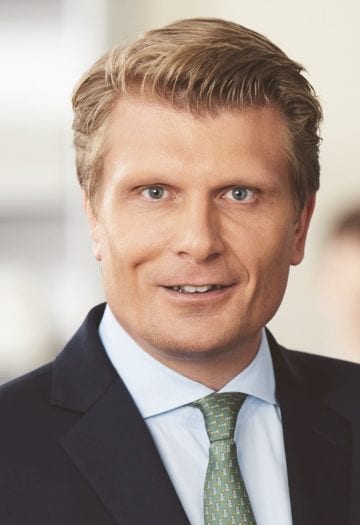EU tourism: Through the crisis and beyond

Thomas Bareiß,
MdB, Parliamentary State Secretary,
Federal Ministry for Economic Affairs and Energy,
Federal Republic of Germany
Tourism is one of the first and most strongly affected sectors hit by the COVID-19 crisis. It is a key economic factor both in Germany and across the EU. Given its diverse cross-sector linkages along the value chain and its impact on other sectors, tourism constitutes one of the most important economic ecosystems within Europe. Before the crisis, more than 12% of Europe’s inhabitants depended on tourism for their livelihood, and 10% of the EU’s gross domestic product was directly or indirectly generated by 3 million tourism companies. Travellers from non-EU countries make up roughly 6% of the EU’s total exports, forming the fourth largest export category.
However, European tourism is currently facing the worst crisis in its post-war history – the coronavirus pandemic. Companies of all sizes are having severe cash flow problems. Annual turnover in the EU’s tourism sector might slump by 86% to 90% this year. Six million jobs – almost a quarter of all tourism-related jobs before the crisis – are at risk. Europe’s cities, in particular, are still missing the usual influx of holidaymakers and business travellers.
Thanks to the concerted efforts of EU Member States and the support of the European Commission, the first steps were taken in May towards a gradual revival of the tourism sector. When the EU’s internal borders were reopened in mid-June, summer holidays in Europe finally became possible. Also, from 1 July 2020, people from initially 15 third countries were able to travel to the EU again for holidays and visits. Thus, Europe made its comeback as the world’s most important travel destination.
The free movement of persons is and will continue to be a valuable asset of the EU that must be preserved. Our efforts therefore remain focused on reducing travel restrictions to a necessary minimum. All measures taken with a view to containing the pandemic need to comply with the principles of proportionality and non-discrimination. Mid-October marked an important moment when the General Affairs Council adopted a recommendation on a coordinated approach among Member States to the restriction of free movement, following a proposal made by the European Commission. The heads of state and government have signalled their support for this approach and intend to agree on further steps of action regularly as the situation evolves.
If tourism is to have any prospects for the future, it is vital to regain trust in safe travel destinations and travel routes, and to restore reliable conditions for planning. This is the only way that Europeans’ desire to travel can be revived.
However, ensuring people’s safety and protecting their health always remains our top priority.
Therefore, the rapid rise in infection rates we are witnessing at present is making it increasingly difficult for political leaders to strike a balance between containing the pandemic and maintaining economic life. The majority of Member States, including Germany, have again opted to take further drastic action for the time being, imposing severe restrictions on public life and introducing measures that once again are making themselves particularly felt by the hospitality and travel sectors.
The short-term objective for tourism is to safeguard jobs and businesses in the EU and to protect successful structures.
Both Member States and the European Commission have responded quickly to mitigate the negative economic impact of the crisis. I am grateful that good cooperation among Member States and the involvement of the Commission have permitted close coordination even in these times of crisis. To some extent, Europe has in fact become more united as it continues to cope with the crisis. We have mobilised the available tools for supporting companies and protecting jobs. On 21 July 2020, the heads of state and government of the EU agreed on the next Multiannual Financial Framework and the recovery instrument entitled ‘Next Generation EU’. This is a comprehensive package worth some 1,800 billion euros. It is now important to rapidly bring the negotiations with the European Parliament to a successful conclusion so that funding can be paid out quickly to support the recovery process and enhance the resilience of the European economy, including the tourism sector.
It is my profound conviction that people’s desire to travel, to discover the world and to experience foreign countries and cultures through personal encounters will be greater than ever once the pandemic has been overcome. Therefore, I am confident that the post-crisis world will hold a lot in store for the travel industry, allowing entrepreneurs and their employees, who will be passionate about receiving guests with great professionalism again, to build on the success of the past.”
Expert article 2803
> Back to Baltic Rim Economies 4/2020
To receive the Baltic Rim Economies review free of charge, you may register to the mailing list.
The review is published 4-6 times a year.
